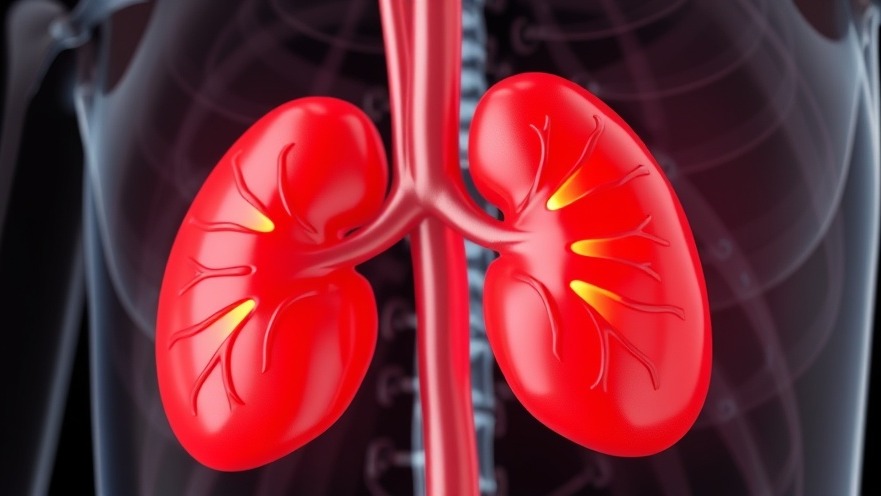
Understanding Kidney Health: Why It Matters
Kidneys are often called the body's filters, playing a crucial role in removing waste and toxins while balancing essential minerals and electrolytes. As we age, particularly for those over 50, maintaining kidney health becomes increasingly vital. Chronic kidney disease (CKD) affects nearly 15% of adults in this age group, making it important to recognize early signs of potential damage.
In '7 WARNING SIGNS of Kidney Damage', the discussion emphasizes the essential signs to look out for regarding kidney health, urging proactive measures for better well-being.
7 Warning Signs of Potential Kidney Damage
In the quest for maintaining bodily health, awareness is key. The video '7 WARNING SIGNS of Kidney Damage' highlights symptoms that should never be ignored. Whether it’s fatigue, swelling in ankles, or changes in urination, each sign is like a red flag waving at you to seek help.
1. Changes in Urination: Look for variations in how often you urinate or changes in the color of your urine. Dark or frothy urine can be a warning sign.
2. Unexplained Fatigue: If you’re feeling unusually tired and it’s not linked to lack of sleep, it might be a sign of kidney issues.
3. Swelling: Puffed-up areas, especially in the ankles or around the eyes, can indicate fluid accumulation due to poor kidney function.
4. Shortness of Breath: Kidney problems can lead to fluid buildup in the lungs, causing labored breathing.
5. High Blood Pressure: The kidneys help regulate blood pressure, so if yours is consistently high, it could signify a problem.
6. Nausea and Vomiting: These symptoms can arise from an accumulation of toxins in the bloodstream that the kidneys aren’t filtering properly.
7. Skin Rash or Itching: If you have persistent itchiness or a rash despite using creams, it could signal kidney dysfunction.
Connecting Kidney Health to Overall Well-Being
Understanding these warning signs is more than just health information; it's a call to action. With a proactive approach, we can combat the risks associated with kidney damage by adapting our lifestyles. Eating a balanced diet rich in fruits, vegetables, and whole grains while staying hydrated is fundamental for supporting kidney health.
Future Implications of Kidney Health Awareness
As the conversation surrounding health continues to evolve, awareness around kidney health must grow concurrently. Future advancements in medical research are expected to yield more effective treatments and improved diagnostic tools—yet it all starts with early detection. By spotting warning signs, patients can take control of their health outcomes.
Making Informed Health Decisions
The power of knowledge and awareness is transformative. Knowing what symptoms to look for enables individuals to seek medical advice sooner rather than later, which can significantly influence treatment options. For those over the age of 50, regular check-ups focusing on kidney health should become a priority—discussing symptoms and expressing any concerns should form part of routine healthcare discussions.
Actionable Steps to Enhance Kidney Health
To safeguard your kidney health, consider the following steps:
Stay Hydrated: Drinking enough water helps your kidneys filter waste effectively.
Control Your Blood Sugar: If you have diabetes, maintaining stable blood sugar levels is essential.
Eat Healthy: Emphasize fruits, vegetables, and limit your intake of processed foods high in salt and sugar.
Exercise Regularly: A routine that includes moderate physical activity can improve overall health and kidney performance.
Embracing a Healthier Lifestyle
Feeling empowered about your health is crucial for everyone, especially those in the second half of life. By recognizing warning signs of kidney damage early and adopting a lifestyle that promotes kidney health, we can all take significant steps towards a healthier future.
 Add Element
Add Element  Add Row
Add Row 




Write A Comment